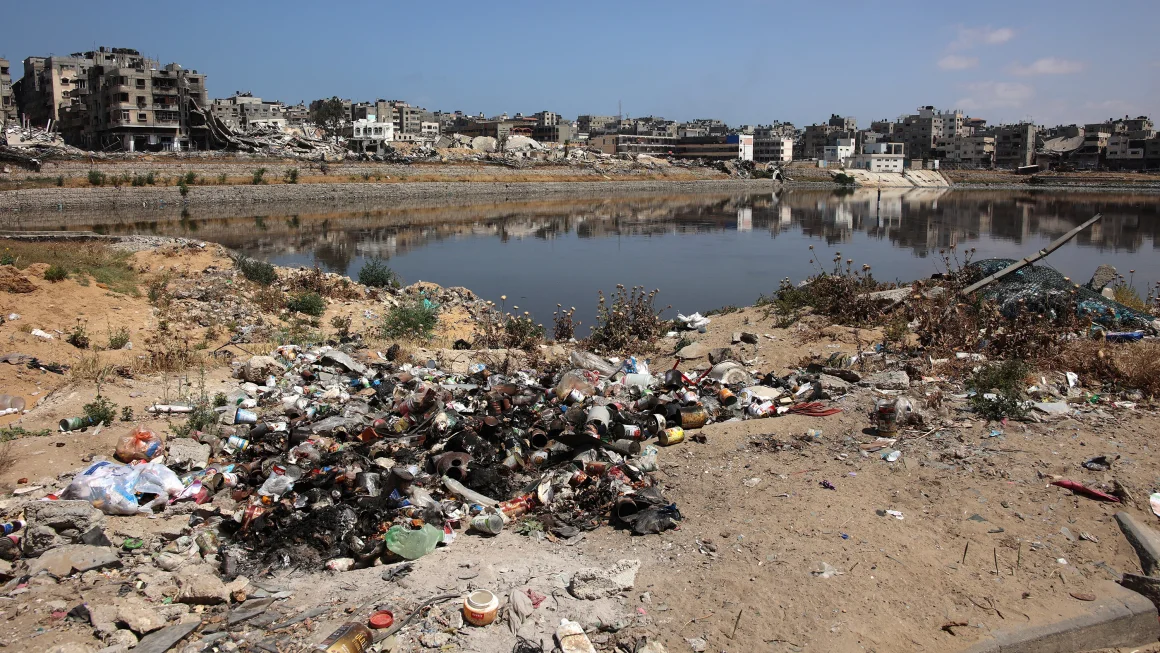
The highly infectious polio virus has been found in sewage samples in Gaza, putting thousands of Palestinians and the region at risk of contracting a disease that can cause paralysis.
Gaza’s Ministry of Health and the World Health Organization (WHO) confirmed the presence of the virus after conducting tests on sewage water samples. “Poliovirus type 2 (VDPV2) had been identified at six locations in sewage samples collected on June 23 from Khan Younis and Deir al Balah,” WHO announced on Friday.
The WHO attributed the findings to the “disastrous sanitation situation” resulting from Israel’s military actions in Gaza following the conflict on Oct. 7.
The WHO emphasized that the virus has only been found in the environment so far, and no associated paralytic cases have been detected.
“It is important to note the virus has been isolated from the environment only at this time; no associated paralytic cases have been detected,” WHO added.
The agency stressed the importance of vigilance, as residents must now face the threat posed by the disease.
Various United Nations agencies, including UNICEF and UNRWA, are collaborating with local health authorities to assess the spread of the virus.
WHO Chief Tedros Adhanom Ghebreyesus highlighted that pre-conflict polio vaccination rates were “optimal,” but the ongoing conflict has created conditions ripe for disease outbreaks.
“The decimation of the health system, lack of security, access obstruction, constant population displacement, shortages of medical supplies, poor quality of water and weakened sanitation are increasing the risk of vaccine-preventable diseases, including polio,” Tedros warned.
Wild polio was eradicated from Gaza over 25 years ago, with vaccination coverage reaching 95% in 2022, according to WHO.
However, poliovirus can re-emerge in areas with poor vaccination coverage, where the weakened vaccine virus strain can mutate into a stronger form capable of causing paralysis.